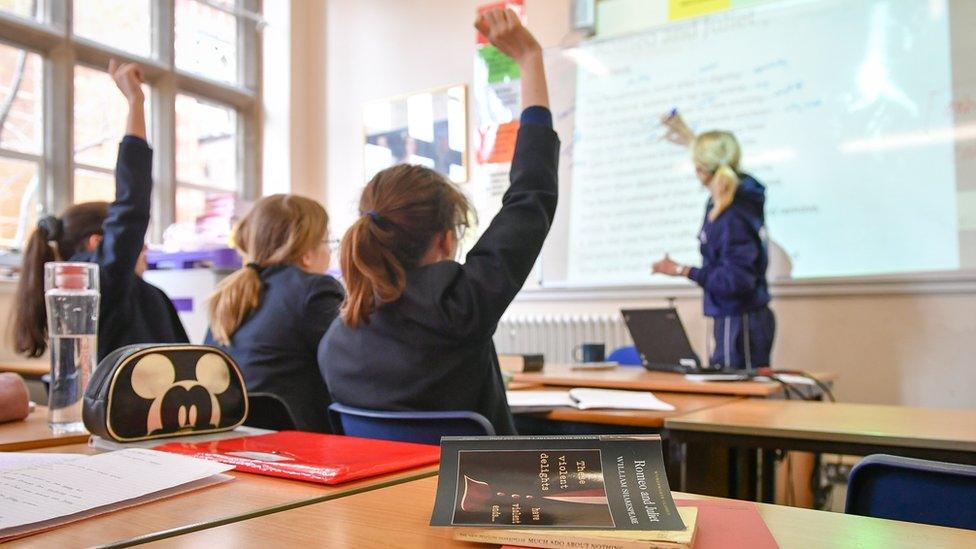Teaching union in Guernsey to ballot over strike action
- Published

The National Education Union in Guernsey is concerned about the future of the sector
Guernsey's biggest teaching union says it is beginning preparations to ballot members over potential strike action.
The National Education Union remains locked in a dispute with the States over pay.
The union said its members had voted to reject the States' three-year pay deal for the second time.
It claims just over 39% of respondents to a recent survey voted to accept the offer - with the majority choosing to reject it.
The union said while industrial action was a last resort, it felt it had no option left and would now begin preparations for an official ballot.
'Genuinely concerned'
Paul Montague, who represents Guernsey's National Education Union, said continued delays to a deal being struck was feeding the problems with recruitment and retention.
Mr Montague said there was an "impending crisis in education" on the island.
He said: "Generally, they [teachers] are genuinely concerned about the future of education on the island, and its long-term impact on the economy.
"These are not teachers being grasping, these are not teachers who are unaware of the economic situation Guernsey finds itself in, what they are aware of is what's going on in education.
"They're extremely aware of that."
Mr Montague said he would like to meet with policy and resources employment lead deputy Dave Mahoney and his colleagues to "make them aware of the situation".
Mr Mahoney said the latest deal was their best offer - a deal which had already been accepted by other pay groups.
The States said its deal offered a 5% uplift to salaries, plus a sum of £500, for 2022, and in 2023 offered an uplift equal to the rate of inflation, which was 7% as of last June.
'Well above inflation'
Mr Mahoney added: "Teachers, amongst other groups as well, have these incremental rises automatically every year.
"The incremental rises for different pay groups are different, I accept that, and of course you might be at the top of your group, in which case you're not getting those incremental rises.
"But even that, that's still at about a 19.2% pay rise over three years. That's well above inflation, we're still talking about a real-terms 5% pay rise.
"I don't see what's unfair about that, I really don't."

Follow BBC Guernsey on Twitter, external and Facebook, external. Send your story ideas to channel.islands@bbc.co.uk, external.
Related topics
- Published21 September 2022

- Published16 September 2022
